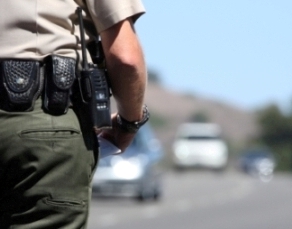On November 28, 2007, the California Court of Appeal for the Fourth Appellate District held that because possession of marijuana for medical purposes is legal under California’s Compassionate Use Act,[1] state courts are not pre-empted by federal law from allowing the return of medical marijuana and that constitutional concerns regarding the illegal seizure of property requires that the marijuana be returned.[2] Police agencies and local governments should take note that if marijuana is seized from a qualified medical marijuana patient and no charges are brought against such patient, the marijuana must be returned to the patient.
This case presents a very narrow issue of preemption: whether federal supremacy principles prohibit the return of marijuana to a qualified user whose possession of the drug is legally sanctioned under state law.[3] The court expressly noted that their decision did not consider whether federal law preempts California law, as that was not the issue before them.
The case arose due to the Garden Grove Police Department stopping Felix Kha for failing to yield at a red light. Kha consented to a search of his car during the traffic stop, and officers discovered a bag containing less than an ounce of marijuana (8.1 grams) in a container labeled “Medical Cannabis” and a pipe for smoking. Kha admitted to purchasing the marijuana from a “lab in Long Beach” and presented a doctor’s referral for using marijuana. The officers seized the marijuana and cited Kha under Cal. Vehicle Code Sections 23222(b) (unlawfully possessing less than one ounce of marijuana while driving) and 21453 (failure to yield at a red light). The trial court accepted Kha’s plea to the moving violation, but Kha contested the drug related charge and presented a note from his doctor verifying he was a medical marijuana patient. After verifying such information, the prosecutor dropped the drug charge but opposed returning the marijuana. Kha petitioned the court for the release of the marijuana.
The trial court ruled that, because the charge had been dismissed, there was no legal basis for keeping the marijuana. The court further ruled that absent authority stating that the City of Garden Grove was prevented from returning such, the marijuana must be returned and ordered the City to comply. The City of Garden Grove appealed the decision, arguing that by returning the marijuana it would itself be violating federal law.
The Court of Appeal affirmed the trial court’s order that the marijuana must be returned to Kha. The appellate court emphasized that its decision was based on the narrow fact that the charges against Kha had been dropped, that the marijuana was no longer needed as part of the City’s investigation, and that traditional concerns regarding evidentiary value were not a concern. The appellate court further noted that, although other states’ medical cannabis laws contemplated the compulsory return of medical marijuana, California’s laws do not. In addition, the City did not oppose the validity of Kha’s claim to be a valid medical cannabis patient, and therefore did not allow such argument on appeal, deeming the ruling by the trial court on this issue as establishing his right to claim the privileges of such a patient.
Thus, with no charges pending regarding the seized contraband, the appellate court affirmed the trial court ruling that continuing to hold confiscated property was a violation of due process concerns under the Fourteenth Amendment of the U.S. Constitution and Article 1, section 15 of the California Constitution.
The bright line rule stemming from this case is that if marijuana is seized from a qualified medical marijuana patient and no charges are brought against such patient, the city must return the seized property. However, as many persons claiming to be qualified patients may have various defects in such status, such rule does not mean every person claiming to be a qualified patient should be given seized marijuana back without a thorough investigation of the validity of such status. In such case, proper evidence collection and analysis still warrants retaining the seized marijuana until such investigation is complete.
For more information regarding the law surrounding medical marijuana use, contact Andrew Jared at 562.699.5500.
[1] Cal. Health & Safety Code § 11362.5 (2007).
[2] See City of Garden Grove v. Superior Court of Orange County (Felix Kha, real party in interest) (2007) G03620 (OCSC Case No. GG98995) at 34.
[3] Id.
